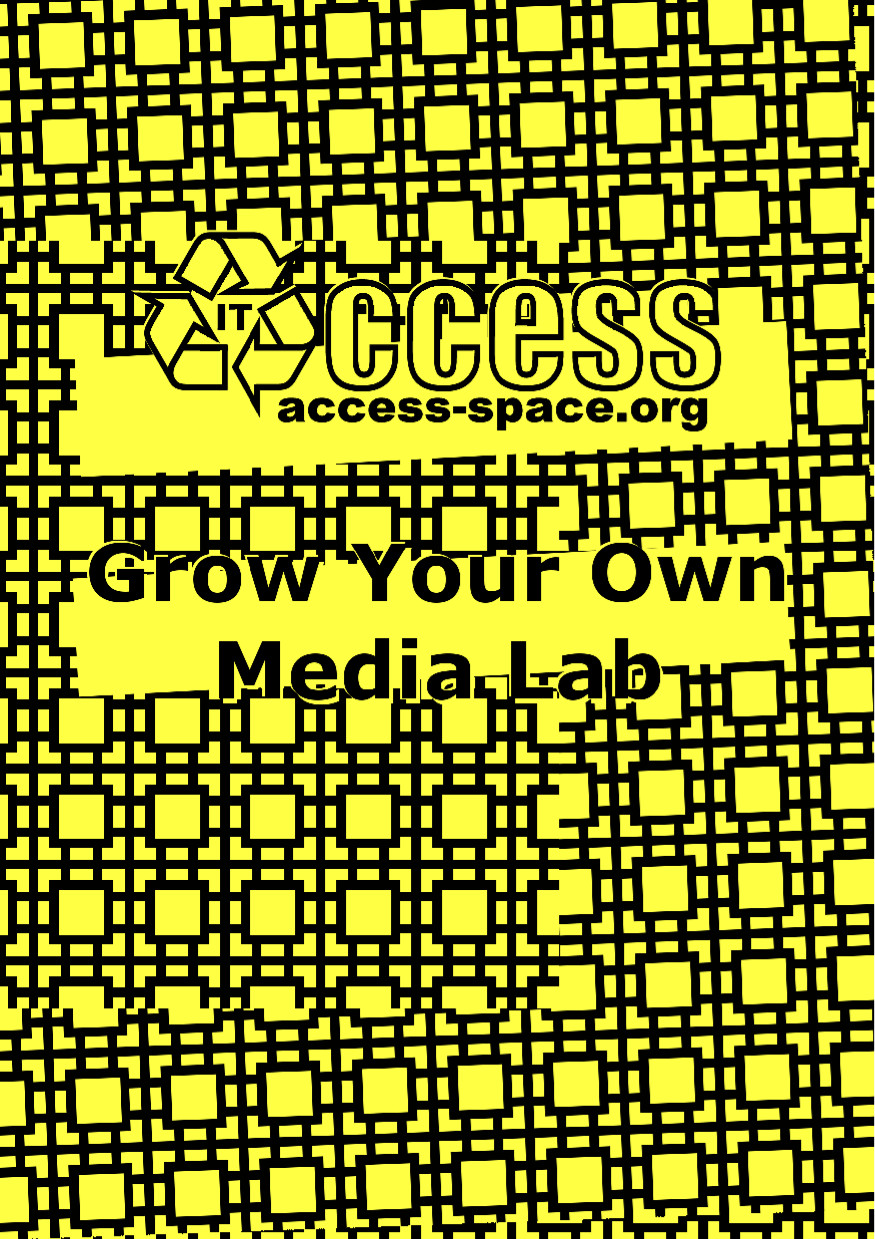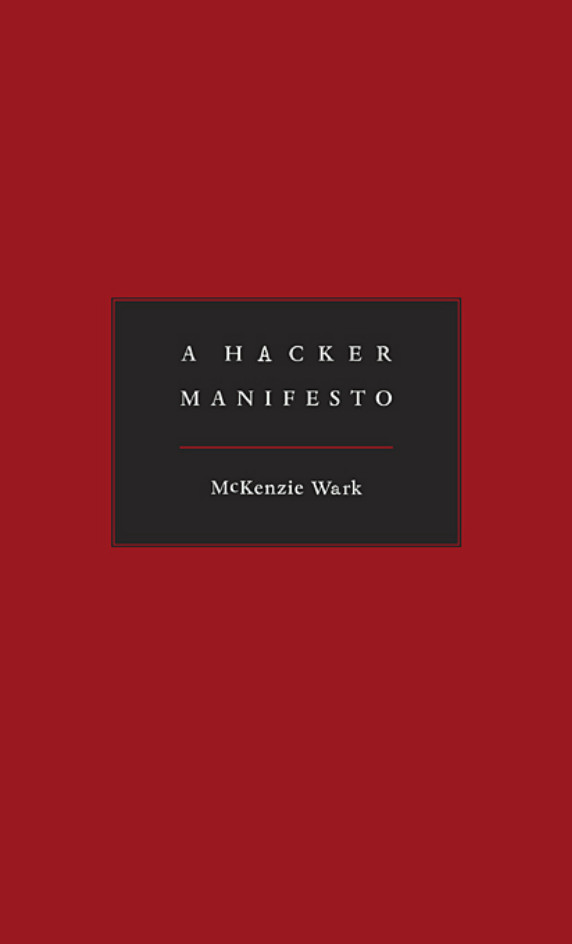Access-Space.org: Grow Your Own Media Lab (2008)
Filed under book | Tags: · floss, free software, media culture, media labs, organization, technology

A comic book by Sheffield’s Access Space.
Text by James Wallbank
Pictures by Michael Tesh
Publisher Access Space, Sheffield, UK, June 2008
Creative Commons BY-SA 2.0 UK License
ISBN 9780955009136
116 pages
Review: Rob Myers (Furtherfield)
PDF (updated on 2017-9-25)
Comments (2)Self-Organisation: Counter-Economic Strategies (2006)
Filed under book | Tags: · activism, economy, floss, free software, intellectual property, internet, mashup, politics, production, self-organization

The book Self-organisation / counter-economic strategies was initiated by the artists’ group Superflex, but it is not about them. It is about the many approaches to the creation, dissemination and maintenance of alternative models for social and economic organisation, and the practical and theoretical implications, consequences and possibilities of these self-organised structures. The counter-economic strategies presented here are alternatives to classical capitalist economic organisation that exploit, or have been produced by, the existing global economic system.
Essays by ten writers cover a wide cross-section of activity, from new approaches to intellectual property and the implications of the free/open source software movement to political activism and the de facto self-organisation embodied in informal architecture and the so-called black economy.
Self-organisation/ counter-economic strategies is not a comprehensive overview or an attempt to unify these diverse interpretations. It is intended as a toolbox of ideas, situations and approaches, and includes many practical examples.
Commissioned texts include Will Bradley on GuaranaPower, Anupam Chander & Madhavi Sunder on fan fiction and intellectual property, Bruno Comparato on the Landless Workers’ Movement in Brazil, Mika Hannula on self-organisation and civil society, Alfonso Hernández on the barrio of Tepito in Mexico City, Susan Kelly on “What is to be done?”, Lawrence Lessig on problems with copyright law, Marjetica Potrč on parallelism and fragmentation in the Western Balkans and the EU, and Tere Vadén on the future of information societies, plus interviews with Craig Baldwin (A.T.A. Gallery, Other Cinema), Brett Bloom (Temporary Services, Mess Hall), Sasha Costanza-Chock (Indymedia), Adrienne Lauby (Free Speech Radio News), and Nigel Parry (Electronic Intifada).
Editors Will Bradley, Mika Hannula, Cristina Ricupero, Superflex
Publisher Sternberg Press, 2006
Producer NIFCA, Nordic Institute of Contemporary Arts; with The Academy of Fine Arts, Helsinki; The Van Abbemuseum, Eindhoven; Montana, Denmark
NIFCA publication # 28
Creative Commons Attribution-NonCommercial-ShareAlike Licence 2.5
ISBN 1933128135
336 pages
PDF (41 MB, updated on 2014-12-22)
Comment (0)McKenzie Wark: A Hacker Manifesto (2004–) [EN, DE, FR, CR, ES]
Filed under book | Tags: · commons, copyright, floss, free software, gift economy, hacker ethic, hacking, intellectual property

A double is haunting the world–the double of abstraction, the virtual reality of information, programming or poetry, math or music, curves or colorings upon which the fortunes of states and armies, companies and communities now depend. The bold aim of this book is to make manifest the origins, purpose, and interests of the emerging class responsible for making this new world–for producing the new concepts, new perceptions, and new sensations out of the stuff of raw data.
A Hacker Manifesto deftly defines the fraught territory between the ever more strident demands by drug and media companies for protection of their patents and copyrights and the pervasive popular culture of file sharing and pirating. This vexed ground, the realm of so-called “intellectual property,” gives rise to a whole new kind of class conflict, one that pits the creators of information–the hacker class of researchers and authors, artists and biologists, chemists and musicians, philosophers and programmers–against a possessing class who would monopolize what the hacker produces.
Drawing in equal measure on Guy Debord and Gilles Deleuze, A Hacker Manifesto offers a systematic restatement of Marxist thought for the age of cyberspace and globalization. In the widespread revolt against commodified information, McKenzie Wark sees a utopian promise, beyond the property form, and a new progressive class, the hacker class, who voice a shared interest in a new information commons.
Publisher Harvard University Press, 2004
ISBN 0674015436, 9780674015432
208 pages
Review: Hua Hsu (Village Voice, 2004).
A Hacker Manifesto (English, 2004, updated on 2014-9-12)
Hacker-Manifest (German, trans. Dietmar Zimmer, 2005, added on 2018-7-13)
Un manifeste hacker (French, trans. Club Post-1984 Mary Shelley & Cie Hacker band, 2006, added on 2018-7-13)
Hakerski manifest (Croatian, trans. Tomislav Medak, 2006)
Un manifiesto hacker (Spanish, trans. Laura Manero, 2006, added on 2018-7-13)
Manifiesto hacker (Spanish, trans. of a shorter essay, undated, v4, added on 2014-3-6)

